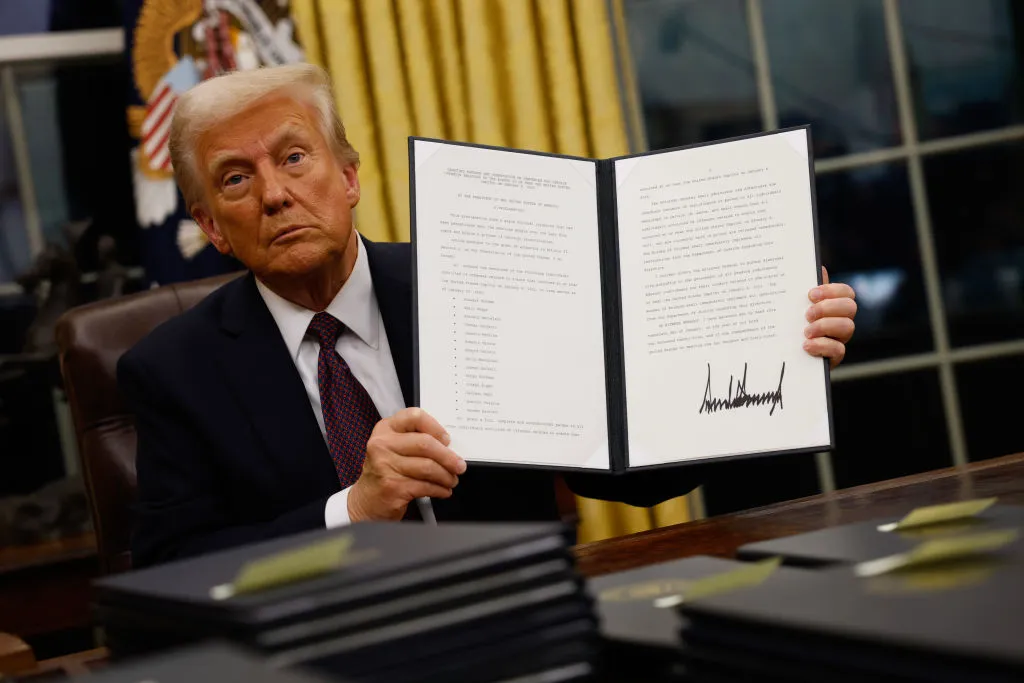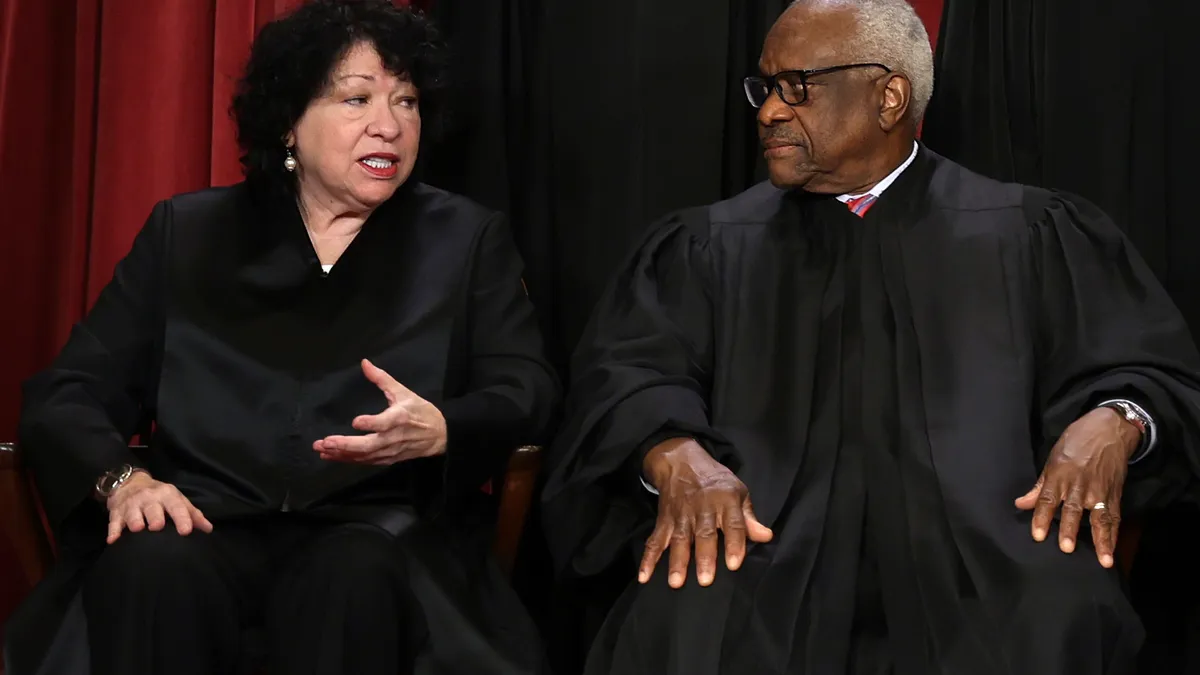Few phrases have fallen out of favor in public discourse quite so much as the three-letter shorthand for diversity, equity and inclusion. But despite the uncertainty that pervades DEI, employers do not have to back down from its individual components, Chai Feldblum, former commissioner at the U.S. Equal Employment Opportunity Commission, said Thursday.
In a virtual presentation hosted by attorneys at law firm Pierson Ferdinand, Feldblum, a Democrat who left EEOC in 2019, acknowledged the uncertainty created by current EEOC Acting Chair Andrea Lucas, who issued guidance last month identifying some DEI programs as “unlawful discrimination.”
Nevertheless, certain DEI programs are legal under federal anti-discrimination laws like Title VII of the 1964 Civil Rights Act, Feldblum said, and employers have a chance to double down on those efforts even now.
“I don’t know that I would call it a reboot,” she said when asked how employers should approach DEI in 2025. “I think I would call it a refresh.”
Despite political trends, DEI is not ‘a legal minefield’
President Donald Trump initiated a full-court press on eliminating DEI programming both in the public and private sectors just days into his second term.
Trump signed multiple executive orders rolling back federal agency DEI initiatives and a separate one directing the U.S. Department of Justice to determine how the White House could discourage private-sector programs. Lucas, and by extension EEOC, have contributed to that effort in part by threatening investigations of employers including several large law firms over their programs.
The main assumption of Trump’s anti-DEI orders, per Feldblum, is that attempts to diversify workforces inherently mean an employer is hiring and promoting employees on the basis of protected characteristics, such as race and sex, instead of merit. It is a view that employers must address head on, she said.
“If you’re being sent that message, you as an employer need to sit back and really make it clear that you are focusing on merit,” Feldblum said. “You are focusing on qualified employees, and these are the completely legal methods that you’re using to get there.”
The idea that DEI is a “legal minefield” is “true only if you’re not doing diversity in the right way,” she continued. DEI programs that center on preference and exclusion do create the potential for discrimination, but that does not necessarily mean that there is discrimination in DEI writ large.

Quotas, exclusionary practices pose risks
Feldblum pointed to two specific areas that raise the specter of illegality: preferences and exclusions. For instance, DEI policies that instruct hiring managers to meet quotas based on sex, race or other characteristics are problematic because implementing them involves discriminating against other candidates who do not fall into the preferred groups.
“That’s where I think employers have not been as careful as they should be,” Feldblum said. “Where they say, ‘We’re going to judge you based on how diverse your team is, and we’re going to look at those numbers. Oh, but by the way, don’t take that into account.’ What are you going to do if you’re a hiring manager?”
Aspirational hiring goals can be a good alternative, Feldblum said, but employers should not come up with their targets arbitrarily. HR should instead consider the full picture of what the qualified labor force for a given job actually looks like, she continued, and while this may be an expensive exercise, it can provide employers a guide.
Audit other aspects of DEI beyond hiring goals
Similarly, affinity groups can prove problematic if they are exclusionary of certain demographics; Lucas, in her letters to law firms last month, questioned the role that affinity groups played in the firms’ promotion decisions and similar opportunities. But affinity groups that are centered around issues that affect certain groups are legal, Feldblum said, citing the example of LGBTQ+ affinity groups that welcome members of that community as well as allies.
“Now more than ever I would say, have affinity groups, and just make sure they understand the boundaries,” Feldblum said. “If you don’t have an affinity group now, this may be exactly the time to do it. This is when people might be feeling that they need that help.”
Equity is perhaps the most embattled of DEI’s three pillars. SHRM, the world’s largest professional HR organization, dropped equity from its DEI policy platform in 2024 in a move its CHRO previously told HR Dive was linked to debates about the term’s meaning.
“You shouldn’t be walking back from your goal of having a workplace in which there’s diversity, equitable actions and inclusion. You don’t walk back from that.”

Chai Feldblum
Former EEOC commissioner
Feldblum said equity should be understood as the treatment of people as equals in a manner that understands how they are “currently situated, and therefore making sure that you're doing something that lets them flourish completely in your workplace.”
Accessibility policies can be an example of equity, she continued. “Let’s say that everyone comes in the front door, and we’re treating everyone equally. But if you’re using a wheelchair, that doesn’t help, right? Because we’re not all similarly situated.”
Employers should have clarity on what is “legally fine” to do under the umbrella of DEI before they move forward, Feldblum said. Pronoun policies, for instance, are likely legal because they promote inclusion; Feldblum said employers should “certainly not stop” allowing people to list their pronouns in email signatures and similar formats. “That’s just sending the most horrible message of exclusion.”
Keep your anti-discrimination training
Likewise, training on harassment prevention is still crucial, and employers should consider whether they need to add respectful workplace training on top of that, Feldblum said. “Maybe think about doing that training now,” she added, even if an employer’s planned training timeline has scheduled it for later.
“You don’t want people starting to act in a way that they feel they can act now given what’s being said in the general culture,” Feldblum said. “That’s going to really mess you up legally.”
It is still okay for HR to take a closer look at their promotion statistics and retention rates to determine how those trends are affecting organizations’ workforce demographics, she noted. More broadly, HR leaders should understand that committing to DEI does not inherently carry legal risk to the broader business.
“You know that the activities you’re going to undertake are activities that are perfectly legal, and those perfectly legal activities align with your business goals,” Feldblum said.

On the new EEOC: ‘We are not in normal times’
While the term DEI may have fallen out of favor, employers should “say less, do more” regardless of whether they decide to keep the moniker going forward, Feldblum said. That decision is not the most important thing for employers moving forward either way. “What’s most important is what you’re doing.”
Instead of DEI, she said HR teams can keep the concepts of diversity, treatment of people in an equitable manner and the goal of an inclusive workplace as central values.
“You shouldn’t be walking back from your goal of having a workplace in which there’s diversity, equitable actions and inclusion,” Feldblum said. “You don’t walk back from that.”
Yet, walking back from DEI is exactly what four law firms agreed to do as part of their respective settlements with EEOC on April 11. Agreements between the agency and the firms stipulated that, among other things, the firms would cease labeling lawful workplace programs explicitly as DEI programs.
Feldblum said it is unfortunate that the agency she used to help lead has maligned DEI, and she previously joined fellow former Democratic EEOC officials in publicly criticizing the agency’s latest guidance documents to employers as “fraught with legal peril.”
On Wednesday, Feldblum said Lucas lacked the legal authority to seek the information she pursued in her letters to law firms and noted that lawsuits and charges filed by employees are still a possibility for the four firms that settled with EEOC — despite Trump’s assurance in a social media post that EEOC would “not pursue any claims” related to issues identified in Lucas’ letters.
Feldblum also said that she and other former EEOC officials had started a website, eeoleaders.org, to provide resources for employers as they navigate DEI issues under the Trump administration. She described the group as “almost like a shadow cabinet” for equal employment opportunity.
“We are not in normal times,” Feldblum said. “But that’s not a reason to stop doing things that are perfectly legal and will achieve other business goals.”




















